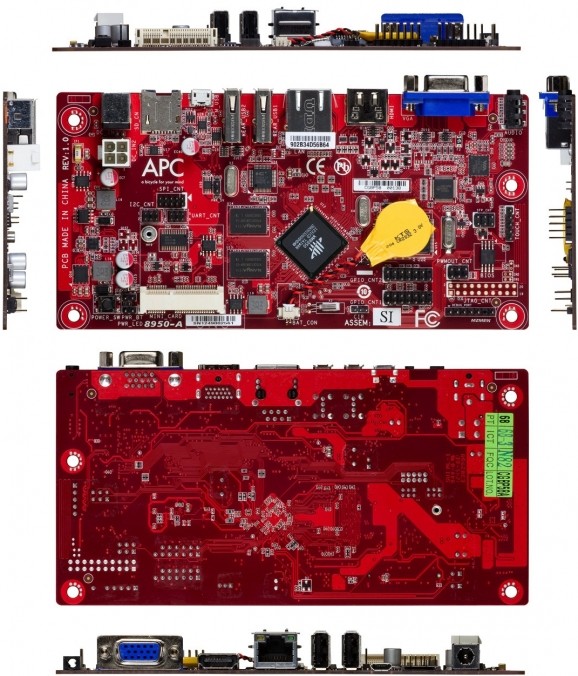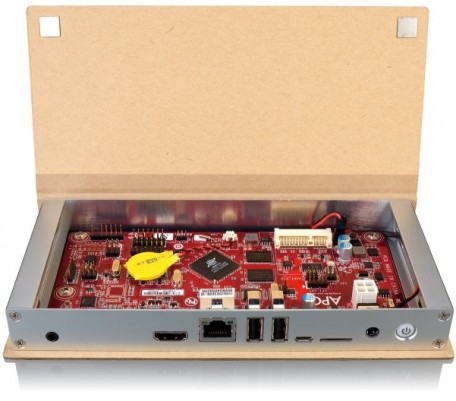Following the Raspberry Pi's cult-like reception, many companies scrambled to enter the DIY palm-sized PC market, including VIA, which started shipping its 6.7 x 3.3-inch APC for $49 last summer. That device ran Android 2.3 Gingerbread and offered an 800MHz ARM11 SoC (the WonderMedia WM8750), 512MB of DDR3 RAM, 2GB of onboard flash memory as well as connectivity including display outputs, USB and Ethernet. The company has now expanded its APC line to include two new models: the $79 Rock and the $99 Paper.

Both new additions share most specifications, including an 800MHz ARM Cortex-A9 processor with an integrated graphics engine that can handle up to 1080p resolutions, 512MB of DDR3 RAM, 4GB of flash storage, as well as HDMI, dual USB 2.0, microUSB, audio in/out, microSD, 20-pin ARM-JTAG and 10/100 Ethernet connectivity. The cheaper model ships with the bonus of a VGA port, while the $99 package has a chassis made out of recycled pressed cardboard and aluminum that resembles a book so it's easy to stash away.

Naturally, that enclosure adds to the Paper's overall bulk, though it's still very small. The $79 Rock has the same measurements as last year's original Neo-ITX-based APC (6.7 x 3.3in or 170 x 85mm), while the $99 Paper is 8.0 x 3.8in or 204 x 98mm. Of note, last year's $49 option is still available, which might be an easy way to save $30 or more if you can get by with the weaker SoC, half the built-in storage, no debug/expansion I/O and an older version of Android. As far as we can tell, orders placed today should ship promptly.
https://www.techspot.com/news/51371-via-updates-apc-mini-arm-pc-line-with-79-rock-99-paper.html